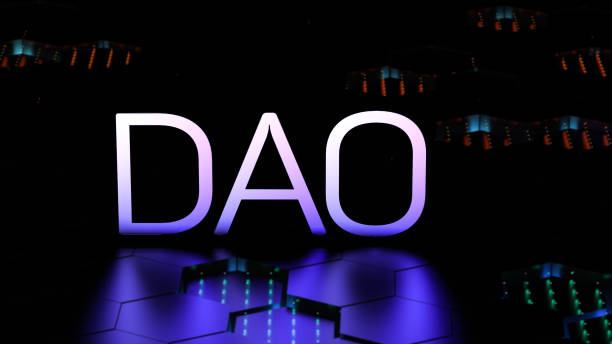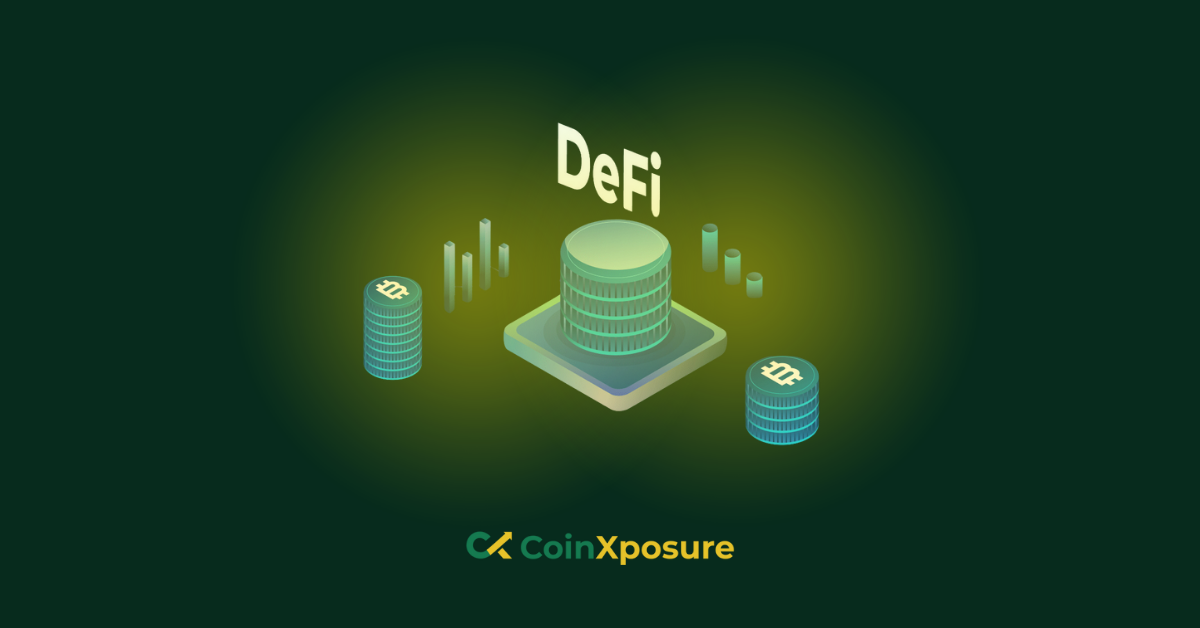Decentralized Autonomous Organizations (DAOs) have emerged as a new way of organizing and governing community-driven projects and businesses. A DAO is a type of organization that is run on a blockchain and operates through smart contracts, allowing for decentralized decision-making and management.
As these organizations operate in a decentralized and autonomous manner, their governance structures are crucial for their success. Effective DAO governance ensures that decision-making is transparent, fair, and accountable, and that the organization’s objectives are aligned with the interests of its members.
However, DAO governance comes with unique challenges, including the lack of centralized control and limited accountability. In this article, we will explore the components of DAO governance, the challenges it presents, and best practices for managing DAOs effectively.
We will also examine case studies of successful DAO governance, providing insights into how to build and manage thriving decentralized organizations.
Definition of DAOs
A Decentralized Autonomous Organization (DAO) is a type of organization that is run by rules encoded as computer programs called smart contracts, which are executed on a decentralized blockchain network.
DAOs operate through a decentralized governance system, where decision-making is made collectively by token holders, who have voting rights in proportion to the number of tokens they hold.
DAOs aim to provide a more democratic and transparent way of organizing and governing community-driven projects and businesses, without the need for centralized control or intermediaries.
The rules and objectives of a DAO are typically set out in a set of publicly available smart contracts, which govern the distribution of funds, decision-making processes, and member voting rights.
Importance of Effective Governance
Effective governance is crucial for the success of a Decentralized Autonomous Organization (DAO). As DAOs operate in a decentralized and autonomous manner, their governance structures play a critical role in ensuring that the organization’s objectives are aligned with the interests of its members and that decision-making is transparent, fair, and accountable.
Without effective governance, DAOs can be vulnerable to a range of challenges, including abuse of power, conflicts of interest, and inadequate decision-making processes, which can lead to loss of funds, member dissatisfaction, and ultimately, failure.
Additionally, DAOs often operate in a rapidly changing environment, where new challenges and opportunities can arise unexpectedly. Effective governance allows DAOs to adapt to changing circumstances and make informed decisions, enabling them to remain competitive and achieve their objectives.
Challenges of DAO governance
DAO governance presents several challenges, including:
- Lack of centralized control
- Limited accountability
- Difficulty in decision-making
- Lack of legal framework
- Technical complexity
Lack of centralized control
DAOs are designed to operate in a decentralized manner, which means there is no centralized authority that can make decisions or enforce rules. This lack of centralization can make it challenging to coordinate decision-making, enforce rules, and maintain accountability.
Limited accountability
As DAOs operate through smart contracts and blockchain technology, it can be challenging to hold individuals accountable for their actions. In some cases, malicious actors may exploit loopholes in the smart contract code, leading to significant financial losses for the organization.
Difficulty in decision-making
DAOs rely on collective decision-making, where members vote on proposals through a token-based voting system. However, this process can be slow and inefficient, particularly if there are large numbers of members or if there is a lack of engagement or participation from members.
Lack of legal framework
DAOs are still a relatively new concept, and there is currently no comprehensive legal framework to govern their operations. This lack of regulatory clarity can create uncertainty and potential legal risks for DAOs and their members.
Technical complexity
DAO governance requires a high level of technical knowledge, particularly in areas such as smart contract development and blockchain technology. This technical complexity can create barriers to entry for some members and limit the diversity of perspectives and skills within the organization.
Components of DAO Governance
The components of DAO governance include:
- Membership and voting rights
- Proposal process
- Decision-making mechanisms
- Transparency and communication
- Smart contract development and auditing
- Legal compliance
Membership and voting rights
DAOs are typically open to anyone who holds a certain number of tokens or shares in the organization. Members have voting rights proportional to their token holdings, which allows for democratic decision-making within the organization.
Proposal process
DAOs typically have a proposal process in place, where members can submit proposals for new initiatives, changes to existing processes, or funding requests. Proposals are typically submitted through a platform such as Aragon or DAOstack.
Decision-making mechanisms
Once a proposal is submitted, members can vote on it using the DAO’s voting system. Some DAOs may use a simple majority voting system, while others may use a quadratic voting system to ensure that smaller stakeholders have a greater say in decision-making.
Transparency and communication
DAOs rely on transparency and communication to ensure that members are informed about the organization’s operations, decisions, and financial status. This can include regular reporting, public discussion forums, and open access to the DAO’s smart contract code.
Smart contract development and auditing
Smart contracts are the backbone of DAO operations, and it is essential to have a strong development and auditing process in place to ensure the security and integrity of smart contracts. This can include regular code audits, bug bounties, and continuous improvement processes.
Legal compliance
While there is currently no comprehensive legal framework for DAOs, it is important to ensure that the organization complies with any relevant laws and regulations. This can include compliance with tax laws, securities laws, and anti-money laundering regulations, among others.
Best Practices for Effective DAO Governance
Here are some best practices for effective DAO governance:
- Clearly define the organization’s mission and objectives
- Develop a clear governance structure
- Foster active member engagement
- Regularly audit and update smart contracts
- Establish risk management protocols
- Maintain legal compliance
- Maintain financial transparency
- Collaborate with other DAOs
- Continuously improve governance processes
Clearly define the organization’s mission and objectives
This ensures that all members are aligned with the DAO’s goals and can work towards achieving them.
Develop a clear governance structure
A well-defined governance structure, including membership requirements, voting rights, and decision-making processes, can help ensure that the organization operates in a transparent and democratic manner.
Foster active member engagement
Regular communication, discussion forums, and engagement with members can increase participation and ensure that decisions are made with input from a diverse range of perspectives.
Regularly audit and update smart contracts
Smart contract development and auditing should be an ongoing process to ensure that the organization’s operations are secure and effective.
Establish risk management protocols
Risk management protocols, such as contingency plans and insurance, can help mitigate potential losses or disruptions to the organization.
Maintain legal compliance
DAOs should comply with relevant laws and regulations, including tax laws, securities laws, and anti-money laundering regulations.
Maintain financial transparency
DAOs should maintain transparency in their financial operations, including regular reporting and open access to financial records.
Collaborate with other DAOs
Collaboration with other DAOs can provide opportunities for knowledge sharing, resource pooling, and mutual support.
Continuously improve governance processes
DAO governance should be a continuous improvement process, with regular evaluation and refinement of governance processes to ensure the organization remains effective and efficient.
Case Studies of Successful DAO Governance
Here are a few case studies of successful DAO governance:
- MakerDAO
- Aragon
- KyberDAO
- Compound
MakerDAO
MakerDAO is a decentralized lending platform that allows users to borrow a stablecoin (DAI) using ether (ETH) as collateral. MakerDAO has a well-defined governance structure, with voting rights proportional to the amount of MKR tokens held by members.
MakerDAO’s governance model has been successful in enabling the organization to adapt to changing market conditions, such as adjusting interest rates in response to changes in the price of ether.
Aragon
Aragon is a platform for creating and managing decentralized organizations. Aragon has a strong focus on transparency and community engagement, with regular town hall meetings and open access to governance proposals and discussions.
Aragon’s governance model has been successful in enabling the organization to rapidly iterate and innovate, with frequent updates and improvements to the platform.
KyberDAO
KyberDAO is a decentralized liquidity protocol that allows for the exchange of tokens without the need for centralized exchanges. KyberDAO has a well-defined governance structure, with voting rights proportional to the amount of KNC tokens held by members.
KyberDAO’s governance model has been successful in enabling the organization to rapidly respond to market changes, such as adjusting token liquidity pools in response to changing demand.
Compound
Compound is a decentralized lending platform that allows users to earn interest on their cryptocurrency holdings. Compound has a well-defined governance structure, with voting rights proportional to the amount of COMP tokens held by members.
Compound’s governance model has been successful in enabling the organization to rapidly innovate, with frequent updates and improvements to the platform, such as adding new cryptocurrency assets for lending and borrowing.
These case studies demonstrate the importance of well-defined governance structures, transparency, and community engagement in enabling the success of DAOs. They also highlight the importance of continuous improvement and adaptation to changing market conditions.
Conclusion
DAO governance is a critical component of decentralized organizations that enables effective decision-making, community engagement, and innovation. While there are challenges to DAO governance, such as the need for legal compliance and effective risk management, there are also best practices that can be followed to ensure successful governance.
These best practices include fostering active member engagement, regularly auditing and updating smart contracts, maintaining financial transparency, collaborating with other DAOs, and continuously improving governance processes.
Successful DAO governance can be seen in organizations such as MakerDAO, Aragon, KyberDAO, and Compound, which have demonstrated the importance of well-defined governance structures, transparency, and community engagement in enabling the success of DAOs.












